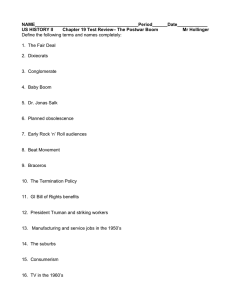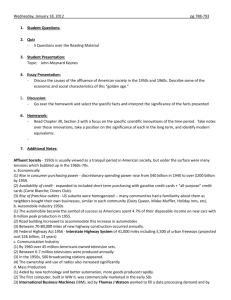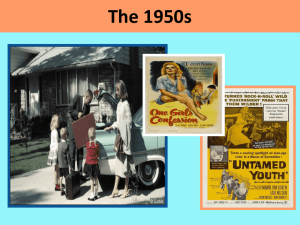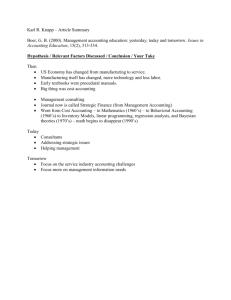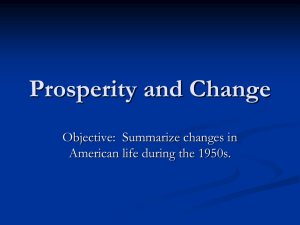The 1950s: Affluence, Consumerism, & Domesticity
advertisement
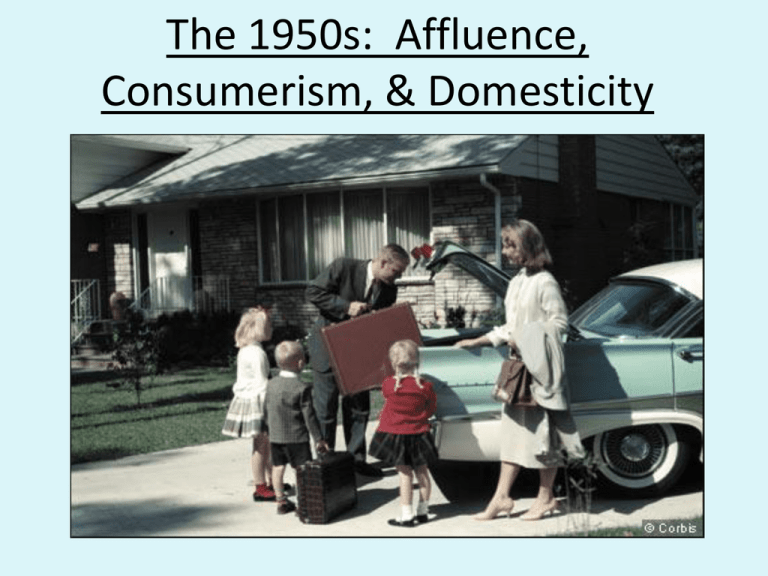
The 1950s: Affluence, Consumerism, & Domesticity G.I. Bill • Prioritized jobs for veterans • 4 million veterans used low-interest loans & mortgages • 4 years of college or job training paid by government • 1947 = WW2 vets are over 50% of college students I. The Affluent Society • By 1960 = 60% of US families owned homes, 75% owned cars, 87% owned 1 TV • Jobs created through government funded defense industry • 1950 = Diner’s Club issued first credit card Suburbanization: Prosperity in the Suburbs • 58 million cars purchased in 1950s • 1946 = $79 million spent building freeways vs. 1960 = $2.6 billion • 85% of the 13 million new homes built in 1950s located in suburbs • Red Lining & Loan denials block African Americans from buying homes in white suburbs Ticky Tacky Houses “A multitude of uniform, unidentifiable houses, lined up inflexibly, at uniform distances, on uniform roads, in a treeless communal waste, inhabited by people of the same class, the same income, the same age group, witnessing the same television performances, eating the same tasteless prefabricated foods, from the same freezers, conforming to in every outward and inward respect to a common mold.” -Lewis Mumford, The City in History, 1961 Levittown, New York II. Consumerism & Conformity • 1/7 of income spent on entertainment • 1946 = 1 out of 18,000 homes owned 1 TV vs. 1960 = 9 out of 10 homes own 1 TV • Advertising creates brand consciousness • TV celebrates conformity, family shows, teen idols, perfect mothers Politics & TV • President Eisenhower’s “We Like Ike” ads • JFK vs. Nixon Presidential debates, 1960 http://www.youtube.com/watch?v=jznAJyS wkmM II. Domesticity • The Baby Boom Generation = 76 million born between 1946 – 1964 • 1 in 3 women married by 19 • By 1960, children under 14 are 1/3 of US population • Dr. Spock, Common Sense Book of Baby & Child, 1946 Marriage in Pop Culture “Catering to his comfort will provide you with immense personal satisfaction; don’t complain if he’s home late for dinner or stays out all night; don’t ask him questions about his actions or question his judgment; a good wife always knows her place.” -Housekeeping Monthly, “The Good Wife’s Guide,” 1955
